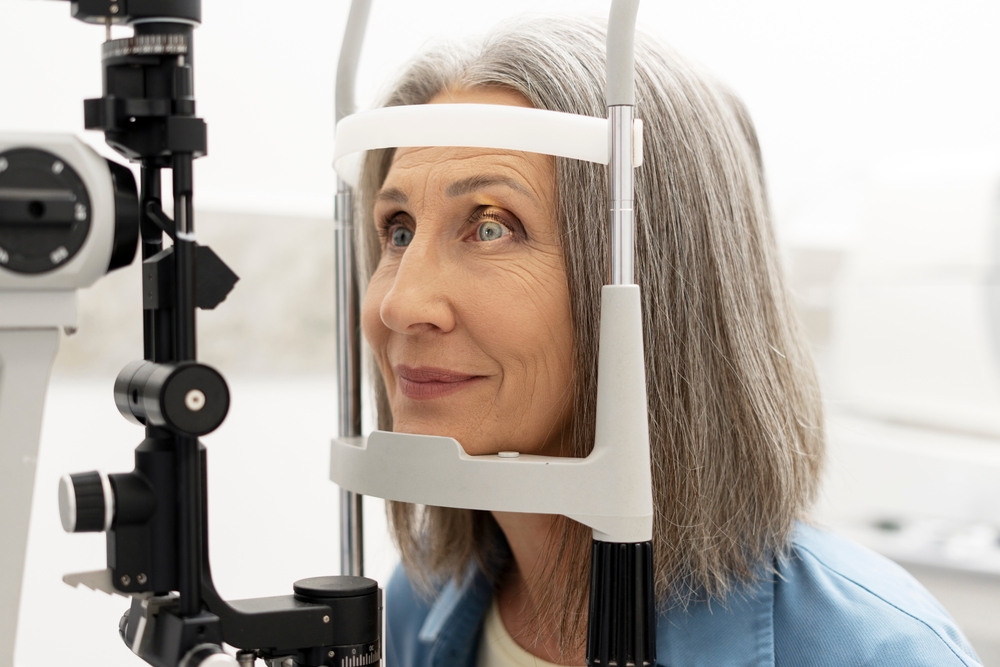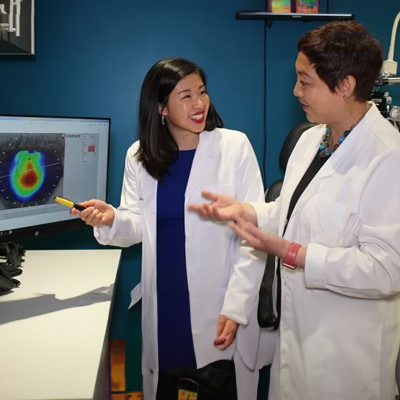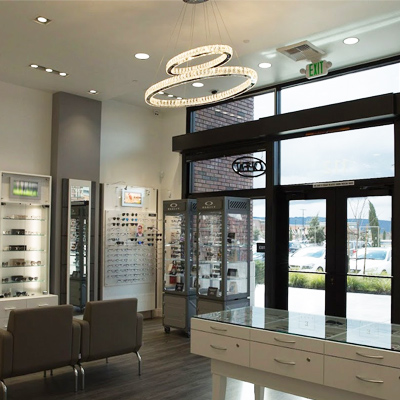
When it comes to maintaining healthy vision, understanding the different types of optical exams available is essential. Whether you're updating your prescription or addressing potential eye health concerns, the right eye exam ensures your visual needs are met. At East Bay Vision Center Optometry, we prioritize thorough eye care, offering a variety of optometric exams tailored to your specific needs.
Comprehensive Eye Exam and What to Expect
A comprehensive eye exam is the most thorough evaluation of your vision and overall eye health. Unlike vision screenings, this in-depth assessment can detect early signs of eye diseases and systemic health conditions.
During a comprehensive eye exam at East Bay Vision Center Optometry, you can expect:
Medical history review: We will discuss your systemic and ocular health history, medications, allergies, and family history of systemic and eye conditions.
Visual acuity testing: We will measure your ability to see clearly at various distances.
Refraction test: We will determine your prescription for glasses.
Eye muscle function test: We will assess how well your eyes move and work together.
Pupil response and peripheral vision test: We will check how your pupils react to light and assess your side vision.
Slit-lamp examination: We will perform a detailed evaluation of the front parts of your eye, including the cornea, conjunctiva, lids and lashes, iris, and lens.
Retinal evaluation: Using advanced imaging or dilation, we will examine the back of your eye, including the retina, macula, optic nerve, and blood vessels.
What Can a Comprehensive Eye Exam Detect?
Comprehensive eye exams can identify a range of conditions, including:
Refractive errors: Nearsightedness (myopia), farsightedness (hyperopia), astigmatism, presbyopia.
Eye diseases: Glaucoma, cataracts, macular degeneration, diabetic retinopathy, floaters, retinal detachment, keratoconus, dry eye disease.
Systemic health issues: High blood pressure, diabetes, and even certain cancers often show early signs in the eyes.
Contact Lens Exam
For those interested in wearing contact lenses, a contact lens exam offers a more specialized evaluation than a standard prescription check. This exam is tailored to ensure the lenses fit properly and provide optimal comfort and vision. One of the key components is corneal measurements, which determine the exact size and curvature of your eye to ensure the lenses sit correctly on its surface.
Another important aspect of the exam is a tear film evaluation. This step assesses whether your eyes produce sufficient tears to keep the contact lenses comfortable and maintain good eye health. For individuals with dry eye, this evaluation is particularly critical to identify any potential issues and recommend solutions.
Finally, the exam includes creating a customized prescription specifically for contact lenses. Since contact lens prescriptions differ from those for glasses, this process ensures you receive the precise details needed for the best vision and comfort. Regular follow-ups are also essential to confirm that the lenses continue to meet your needs and maintain your eye health over time.
Office Visit (or Urgent Care Visit)
Sometimes, one may experience eye issues that require immediate or urgent attention. This includes eye injuries, pain, or sudden vision changes. These symptoms include and are not limited to:
Vision changes: sudden loss of vision, sudden double vision, flashes of light, floaters in vision, wavy lines, halos or auras, fluctuating vision, light sensitivity
Eye pain or discomfort, eye redness, foreign body sensation, sandy or gritty sensation, watery or mucous discharge
Contact lens complications: eye infections, eye inflammations, corneal ulcer
Eye conditions such as conjunctivitis, swelling of eyelids, hordeolum (stye), conjunctival hemorrhage (broken blood vessel in the white of the eye), dry eye syndrome, eye allergies, eye injury, corneal abrasion or scratched
Foreign bodies on or in the eye
When in doubt, it’s better to err on the side of caution and seek medical attention urgently for your symptoms. Call our office if you need to schedule an office visit for your symptoms.
The Importance of Annual Eye Exams
Annual comprehensive eye exams are essential for preserving clear vision and supporting overall eye health. These exams provide a proactive approach to eye care, helping to identify potential problems before they become more serious. Preventative care is one of the most significant benefits of annual exams, as detecting issues early allows for timely intervention and can help avoid complications that may affect your vision or overall health.
In addition to preventative care, monitoring vision changes is a key reason to schedule yearly exams. Your eyes can change over time due to age, lifestyle, or underlying health conditions. Regular check-ups ensure that your prescription is always accurate and up to date. This is particularly important for individuals who rely on corrective lenses to function effectively in their daily lives.
For children, annual eye exams are even more critical. Children’s vision plays a vital role in their learning and development, and regular exams can help detect and address issues such as myopia, hyperopia, astigmatism, or amblyopia early on. Children’s eye exams can also detect strabismus (or eye turn) or double vision. Identifying these problems early can prevent them from impacting a child’s ability to succeed academically and socially, setting them up for a healthier future.
Your Vision, Our Priority
Your eyes deserve the best care, and at East Bay Vision Center Optometry, we’re committed to providing the most thorough eye exams to support your vision and health. Whether you’re due for your annual exam, need a contact lens fitting, or are experiencing vision problems, our experienced team is here to help.
Contact East Bay Vision Center Optometry to schedule your comprehensive eye exam and invest in your eye health for a brighter, clearer future. Visit our office in Oakland, Fremont, or Pleasanton, California. Please call (510) 268-9600, (510) 796-9600, or (925) 462-1100 to book an appointment today.









